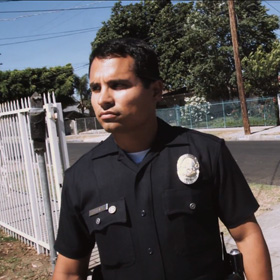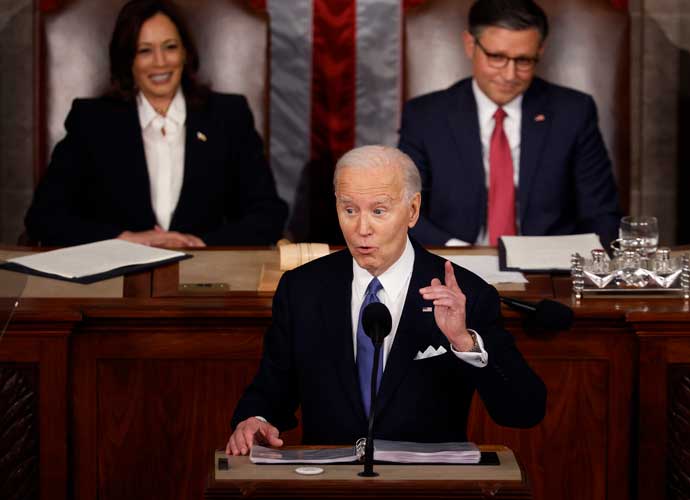'End Of Watch' Does Director Ayer Justice

4/5
Anyone buying a ticket for David Ayer's latest gritty urban cop caper based on the trailer that sold it as a gangland chase thriller is in for a shock, but that is not to say that they are in for disappointment. Yes, the much-highlighted "contract" put out on Michael Pena and Jake Gyllenhaal's dick-swinging boys in blue by an aggrieved cartel is crucial, but it is only one thread in a much richer tapestry. As usual, Ayers has much more on his mind than simple running and gunning. Rather, End of Watch is another chapter from Ayers' career-long fascination of the multicultural, multiethnic maelstrom that is inner-city America, the bizarre symmetry that exists between law enforcement and the criminal element they hunt, and those whose lives often depend on their ability to straddle the divide between the two.
A white guy born in Minnesota, who lived for a time in Maryland before spending his teenage years being raised in a Hispanic culture in South Central L.A., Ayer is a man who can count among his closest friends ranking members of Bloods, Crips, as well as LAPD and agents of ICE and other law enforcement agencies. It's no wonder then that, beneath the banter and the boorish bullshit the two leads indulge in as a staple of patrol, End of Watch is ultimately a story about fraternity and the bonds of family that reach farther and deeper than mere blood, and extend universally across all walks of life. It's a study of people on both sides of the law who would gladly take a bullet for one another, which is handy because, as we see soon and often, they will probably at some point have to.
Not that Ayer appears to hold much romanticism for this concept, bleakly touring us through a downtown district that's guttural, foul and more than a little nauseating. Ayer's Los Angeles is a sprawling metropolis presented as a living, breathing organism pumping its inhabitants through a twisting, turning network of cookie-cutter projects riddled with the disease of poverty. You never know what sordid secrets the house you roll up on may be hiding: bodies, drugs or just another panicked crackhead who forgot which closet she locked her tied-up children in this time.
Key to the entire piece is a captivating central dynamic between the two leads. Blessed by another peach of a script from their director, Gyllenhaal and Pena trade jibes back and forth in a manner that is at once authentic and at the same time pointed and in service to the narrative. It's an effortless chemistry, the result of months of exhaustive prep work together, which perfectly encapsulates the transition from idle chit-chat to game time with each and every call that comes in. That and Ayer's somewhat juvenile sense of humor shines through and allows for moments of genuine belly-laugh hilarity to supplement the grime. Elsewhere there is fine work from Anna Kendricks as Gyllenhaal's new girlfriend and Natalie Martinez as Pena's wife, tasked here as the women who wait in hope that the people they love make it home alive at the end of each day.
If there has been a criticism of Ayer over the years, it's that he is certainly much better with the words than he is with the camera, his previous efforts coming off as a little bit choppy, a bit thrown together and a bit haphazard. Here he might finally have found a solution to his problem, now that the digital age means that the world and his wife have a camera in their back pocket, allowing for much of the story to be told through POV — offering a nervous, jittery feel that gives the whole thing a visceral, urgent vibe that feels dangerous, immediate and never anything less than compelling.
RELATED ARTICLES
Get the most-revealing celebrity conversations with the uInterview podcast!







Leave a comment